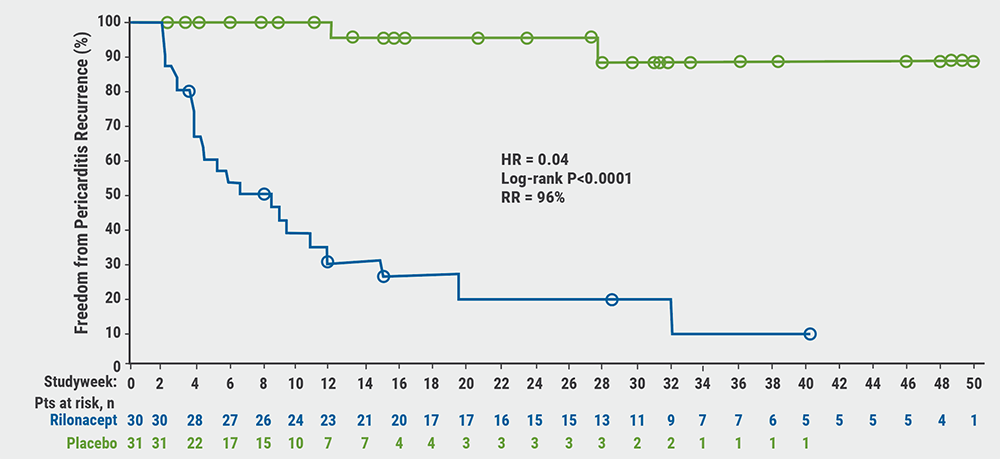These were the main results from a retrospective study of patients from the Yale Cardiovascular COVID Registry, a cohort of adult patients ≥18 years hospitalised with COVID-19 in the Yale New Haven Health System. Medical record review was performed in 396 consecutive patients who were admitted between March and June 2020. Participants' mean age was 68.2 years, 52.3% were men, and 15.7% had a prior history of AF/FL.
A high proportion of patients (19.9%) had in-hospital AF/FL; some of these (7.8%) did not have a prior history of AF/FL. Patients with in-hospital AF/FL had a significantly higher risk of cardiovascular complications compared with those who did not, including cardiac injury (78.5% vs 42.7%; P<0.001), type 2 myocardial infarction (53.3 vs 30.3%; P=0.002), and heart failure (32.9% vs 9.2%; P<0.001). In-hospital AF/FL was associated with significantly worse COVID-19-related outcomes, including mortality (see Figure).
FIgure: Association between AF/FL and adverse outcomes among hospitalised COVID-19 patients [1]

- Ghazizadeh Z, et al. Prevalence and Outcomes Among Hospitalized Patients With Covid-19 and Atrial Fibrillation or Flutter. P2355, AHA Scientific Sessions 2020, 13–17 Nov.
Posted on
Previous Article
« High-dose influenza vaccine in patients with CVD Next Article
Meta-analyses: ACEI/ARB and COVID-19 »
« High-dose influenza vaccine in patients with CVD Next Article
Meta-analyses: ACEI/ARB and COVID-19 »
Table of Contents: AHA 2020
Featured articles
COVID-19 and Influenza
Fewer CV complications than expected in AHA COVID-19 Registry
Worse COVID-19 outcomes in younger obese patients
Effects of CVD in hospitalised COVID-19 patients
Unfavourable outcomes for COVID-19 patients with AF and atrial flutter
High-dose influenza vaccine in patients with CVD
Atrial Fibrillation
Vitamin D or omega 3 fatty acids do not prevent AF
Active screening for AF improves clinical outcomes
AF screening in older adults at primary care visits
CVD Risk Reduction
Clever trial design gets patients back on statins: the SAMSON trial
Polypill plus aspirin reduces cardiovascular events
Lowering LDL cholesterol in older patients is beneficial
No CV benefit from omega 3 in high-risk patients
Safety and efficacy of inclisiran for hypercholesterolemia
Remote risk management programme effective and efficient
Healthy lifestyle lowers mortality irrespective of medication burden
Heart Failure
Omecamtiv mecarbil improves outcomes in HFrEF-patients
IV iron reduces HF hospitalisation
Dapagliflozin reduces renal risk independent of CV disease status
“Strongly consider an SGLT2-inhibitor in most T2DM patients”
Additional HFrEF education and patient-engagement tools
Acute Coronary Syndrome
No benefit from omega-3 fatty acids after recent MI
PIONEER III trial: Drug-eluting stents comparable
Coronary and Valve Disease
Extra imaging reveals cause of MINOCA in women
Ticagrelor not superior to clopidogrel after elective PCI
Stroke
Ticagrelor/aspirin reduces stroke risk in patients with ipsilateral cervicocranial plaque
AF monitoring following cardiovascular surgery
Miscellaneous
PAD: Rivaroxaban reduces VTE risk after revascularisation
Sotatercept: potential new treatment option for PAH
Finerenone lowers CV events in diabetic CKD patients
Mavacamten effective in obstructive hypertrophic cardiomyopathy
Children exposed to tobacco smoke have worse heart function as adults
Transgender people have unaddressed heart disease risks
Intensive blood pressure lowering benefits older adults
Longer chest compression pause worsens outcomes after paediatric IHCA
Related Articles

February 18, 2021
Rilonacept reduces risk of pericarditis recurrence
February 18, 2021
Extra imaging reveals cause of MINOCA in women
February 17, 2021
Clever trial design gets patients back on statins: the SAMSON trial
© 2024 Medicom Medical Publishers. All rights reserved. Terms and Conditions | Privacy Policy
HEAD OFFICE
Laarderhoogtweg 25
1101 EB Amsterdam
The Netherlands
T: +31 85 4012 560
E: publishers@medicom-publishers.com

